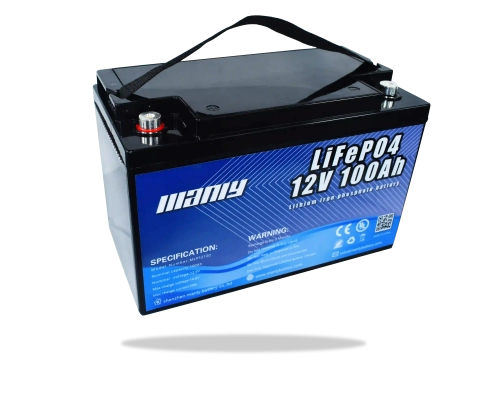Top 12 Solid State Battery Companies Shaping the Future
Table of Contents
The race to develop next-generation solid state batteries is intensifying, with multiple Solid State Battery Companies making significant advancements. Unlike traditional lithium-ion batteries, solid state batteries use solid electrolytes, which offer enhanced safety, higher energy density, and faster charging capabilities. These features have attracted the attention of major companies, leading to a surge in research and development efforts. The following sections provide an in-depth look at some of the top Solid State Battery Companies, their unique approaches, and their development timelines, highlighting the potential impact of their innovations on the energy storage industry.
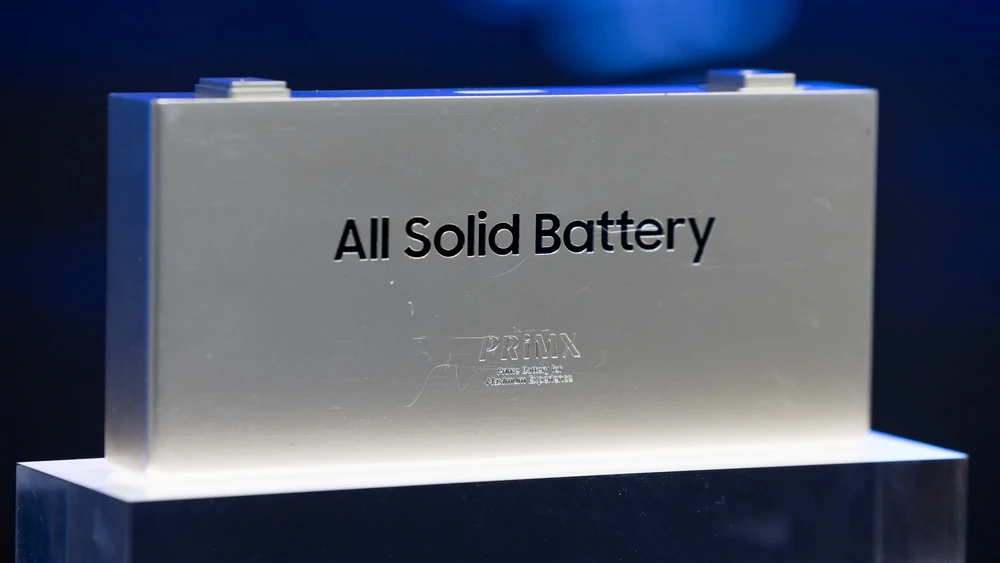
What Is a Solid State Battery?
A solid state battery is a new technology that uses solid electrodes and a solid electrolyte, unlike conventional lithium-ion batteries that rely on liquid or gel-based electrolytes. The primary difference lies in the materials used for energy transfer. Traditional batteries typically use a fluid electrolyte, which can cause safety concerns like overheating or even explosions under extreme conditions. In contrast, solid state battery materials are usually made from ceramics, glass, or polymers, which are far more stable and safer.
The solid state battery uses these solid materials to conduct ions between the electrodes, replacing the liquid solution found in older battery designs. This difference in construction significantly improves safety, as solid materials are non-flammable and can withstand much higher temperatures without breaking down. As a result, solid state battery materials make the technology more reliable, reducing the risk of leaks, fires, or chemical reactions.
Another key aspect of a solid state battery is its ability to use lithium metal as the anode instead of graphite. This change boosts the energy density, allowing the battery to store more power in the same size or weight. This is particularly beneficial for electric vehicles (EVs) and portable electronics that require compact, high-capacity power sources. By using advanced solid state battery materials, manufacturers can create batteries that are not only safer but also lighter and longer-lasting compared to traditional options.
Overall, a solid state battery is seen as a promising replacement for current lithium-ion batteries because of its enhanced safety, longer lifespan, and higher energy density. As this technology advances, it could lead to a revolution in how batteries are used in various industries, from electric vehicles to renewable energy storage systems.
Benefits of Solid State Batteries
The benefits of solid state batteries make them a strong contender as a replacement for lithium batteries in many applications. Their advantages over traditional lithium-ion batteries include enhanced safety, improved energy density, and rapid charging capabilities, making them highly attractive for industries that demand reliable, long-lasting power solutions.
Enhanced Safety Features
One of the key benefits of solid state batteries is their significantly improved safety profile. Traditional lithium-ion batteries use liquid electrolytes, prone to overheating, leaking, or even catching fire under certain conditions. However, solid state batteries replace these with stable, non-flammable materials like ceramics or polymers, reducing the risk of thermal runaway and making them safer for use in high-stress environments such as electric vehicles and industrial equipment. Solid electrolytes are more resistant to degradation over time, which means a lower chance of failure even after extended use.
Improved Energy Density Monitoring
Another crucial benefit of solid state batteries is their higher energy density. By utilizing solid state battery materials like lithium metal as the anode, solid state batteries can store more energy per unit of volume or weight than traditional batteries. This feature is especially important for applications where space and weight are at a premium, such as electric vehicles and portable electronics. A solid state battery can double or triple the energy density of a conventional lithium-ion battery, offering more range for EVs or longer usage times for electronic devices. Additionally, the solid electrolytes in these batteries enable better energy density monitoring, allowing for more precise control over the battery’s charge and discharge cycles.
Rapid Charging Capabilities
Solid state batteries are also known for their rapid charging abilities, a key advantage over conventional lithium batteries. Because of their unique structure and the properties of solid state battery materials, these batteries can support faster ion movement, reducing the time needed to charge fully. While traditional batteries may take hours to reach a full charge, solid state batteries can achieve the same in a fraction of the time, making them an ideal replacement for lithium batteries in applications where quick recharging is critical, such as electric vehicles or emergency backup systems.
The combination of enhanced safety, higher energy density, and rapid charging capabilities positions solid state batteries as the next evolution in battery technology. As manufacturers continue to refine this technology, it has the potential to serve as a superior replacement for lithium batteries across various sectors.
Challenges in Speeding Up Solid State Battery Development
Although solid state batteries have shown significant potential as the future of energy storage, multiple obstacles remain. These challenges hinder the speeding up of solid state battery development and achieving large-scale commercialization. The issues range from competition with other technologies to the complexities of the production process. Let’s look at some of the key challenges researchers and manufacturers face.
Alternative Technologies Available
One of the most significant barriers to speeding up solid state battery adoption is the presence of other competing technologies. Current lithium-ion batteries, for example, have a well-established supply chain, lower costs, and are widely used in many applications. As a result, traditional lithium-ion batteries still dominate the market due to their affordability and proven performance. Besides lithium-ion, other emerging technologies, such as sodium-ion and lithium-sulfur batteries, offer different benefits. These alternatives make it harder for companies to justify the high investment needed to develop solid state batteries.
With more options available, many manufacturers hesitate to commit to solid state technology fully. They are weighing the benefits of solid state batteries against the potential of other systems. Until the cost, safety, and energy density of solid state batteries can be proven to significantly outperform existing options, the adoption process will remain slow. This means speeding up development will require a stronger focus on research and proving the unique value of solid-state systems over other battery technologies.
Complex Production Techniques
Another major challenge in speeding up solid state battery development is the complex manufacturing process. Traditional lithium-ion batteries have a streamlined production process that has been optimized over decades. In contrast, solid state batteries use a completely different set of solid state battery materials, such as ceramics or glass, which are harder to handle and more expensive to produce. The delicate structure of these materials makes it difficult to maintain high-quality standards during manufacturing, leading to low yields and high costs.
Additionally, achieving a uniform and stable interface between the solid electrolyte and the electrodes is crucial. Any defects can cause the battery to malfunction or degrade quickly. This requirement for precise manufacturing means that scaling up production is not as simple as for conventional batteries. Current methods for creating solid state batteries often involve high temperatures and pressures, which are costly and time-consuming. As a result, speeding up production would require new techniques and innovations that can lower costs and reduce the time needed to manufacture these advanced batteries.
Moreover, solid state batteries require specialized equipment that is not widely available, making it difficult for smaller companies to enter the market. This results in a significant investment barrier for new players, slowing down overall progress. To make solid state batteries a viable commercial product, the industry needs breakthroughs in both materials and manufacturing processes to streamline production and reduce costs.
Solid State Battery Timeline
The Solid State Battery Timeline shows how this promising technology has evolved from initial research stages to its expected mass production. Despite its potential benefits over conventional lithium-ion batteries, the path to large-scale commercial use has been lengthy and challenging. Here is a closer look at the development timeline and key milestones for solid state batteries.
Early Research and Development (1970s – 2000s)
The concept of solid state batteries was first introduced in the 1970s, when researchers began experimenting with solid state battery materials like ceramics and polymers to replace the liquid electrolytes used in traditional batteries. During this period, the focus was mainly on improving energy density and safety. However, due to technical limitations and high production costs, solid state batteries remained largely confined to laboratory experiments.
Technological Breakthroughs and Prototypes (2010 – 2019)
In the early 2010s, interest in solid-state technology gained momentum as several companies, including Toyota and Samsung SDI, began investing heavily in research and development. They explored various solid state battery materials and made significant advancements in the composition of solid electrolytes. By 2017, Toyota and other key players had successfully developed the first solid-state prototypes, proving that these batteries could be used in real-world applications. This period marked a turning point in the Solid State Battery Timeline, demonstrating the potential for safer, more efficient energy storage solutions.
Pilot Production and Initial Commercialization (2020 – 2025)
The 2020s have seen rapid progress in the commercialization of solid state batteries. Companies like QuantumScape and Solid Power have shifted from laboratory research to pilot production, aiming to bring their products to market. These firms have partnered with major automakers like Volkswagen and Ford, focusing on using solid state batteries in electric vehicles (EVs). By 2025, many manufacturers plan to release their first-generation solid state battery models for EVs, targeting longer driving ranges and faster charging times.
Mass Production and Market Expansion (2026 – 2030)
The Solid State Battery Timeline suggests that mass production will begin around 2026, as several leading companies, such as CATL and BYD, have announced plans to launch large-scale production lines. By this time, technological barriers related to solid state battery materials and manufacturing techniques are expected to be resolved, making these batteries more cost-competitive with traditional lithium-ion batteries. This period will also see broader adoption in consumer electronics, energy storage systems, and potentially aviation.
Future Developments (2030 and Beyond)
Looking further ahead, the focus will be on optimizing the performance and cost of solid state batteries. As production scales up and the technology matures, solid state batteries are expected to replace conventional lithium-ion batteries in various applications. This transition will likely reshape the energy storage landscape, providing safer, more efficient power solutions for industries worldwide.
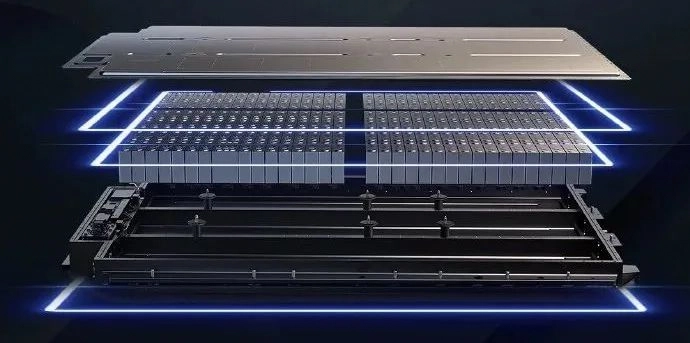
12 Best Solid State Battery Companies
The rise of solid state battery companies is reshaping the energy storage industry, pushing the boundaries of what traditional lithium-ion technology can achieve. A solid state battery utilizes solid electrolytes instead of liquid ones, offering enhanced safety, higher energy density, and faster charging times. These benefits have captured the attention of major players such as CATL, BYD, and QuantumScape, each striving to lead this technological evolution. While these companies pave the way forward, MANLY Battery is also gearing up for this transformation. As we continue developing cutting-edge lithium batteries, stay connected for our future solid state innovations!
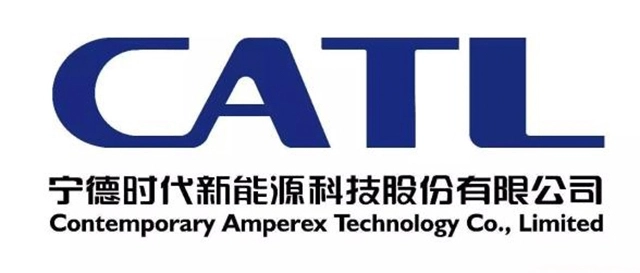
CATL
Overview
CATL (Contemporary Amperex Technology Co., Limited) is a global leader in battery manufacturing and one of the most influential players in the solid state battery market. The company recently unveiled its “condensed state battery” technology, which integrates liquid and solid electrolyte features to offer a hybrid solution. This innovative design achieves an energy density of up to 500 Wh/kg, positioning it as one of the most advanced solid state battery technologies currently under development. CATL focuses on enhancing energy density and safety—two critical factors that traditional lithium-ion batteries often struggle to balance.
Development Timeline
- 2023: CATL introduced its condensed state battery, marking a significant milestone in the company’s solid-state research. The new battery technology utilizes a sulfur-based solid electrolyte, which offers high ionic conductivity and stability, making it ideal for achieving higher energy densities while maintaining safety.
- 2024: CATL’s chief scientist, Wu Kai, announced that the company’s solid state battery technology is currently at a “4 out of 9” maturity level. This scale measures the progress toward full commercialization, with 9 representing readiness for large-scale production. The company set a target to reach a maturity level of “7 or 8” by 2027, enabling small-scale production and establishing CATL as a leader in the solid-state sector.
- 2027: CATL aims to achieve a significant milestone by starting small-scale production of its solid state batteries. This achievement will position CATL as a frontrunner in the industry, paving the way for broader commercialization. The company plans to integrate its solid-state technology into various applications, including electric vehicles (EVs) and energy storage systems.
- 2030 and Beyond: By 2030, CATL expects to have fully commercialized its solid state battery technology, meeting the growing demand for safer and more efficient energy storage solutions. The company’s long-term strategy includes expanding its solid state battery offerings to support a variety of applications, from high-performance EVs to industrial energy storage systems.

BYD
Overview
BYD, another prominent player among Solid State Battery Companies, has made significant strides in developing its own solid state battery technology. Although BYD has not yet introduced a commercial solid-state product, it has pursued a unique design combining a high-nickel ternary (single crystal) cathode, a silicon-based anode, and a sulfur-based electrolyte. This advanced configuration is expected to yield energy densities exceeding 280 Wh/kg, making BYD a strong competitor in the high-performance battery market.
Development Timeline
- 2018 – 2022: BYD laid the groundwork for its solid state battery research by investing heavily in material science and establishing partnerships with top research institutions. During this period, the company refined its electrolyte and electrode compositions to enhance energy density and safety.
- 2023: The company officially announced its intention to commercialize solid state batteries and began prototyping its first solid-state cells. BYD’s initial designs showed promising results, surpassing conventional lithium-ion batteries’ energy densities.
- 2027: BYD’s first significant milestone is the planned launch of small-scale solid state battery production. The company will initially focus on integrating these batteries into its high-end vehicle models to validate performance and safety in real-world conditions.
- 2030: By 2030, BYD aims to equip around 40,000 vehicles with its solid state battery technology. The company plans to expand production capacity to support the growing demand for solid-state batteries in electric vehicles and other applications.
- 2033 and Beyond: BYD’s long-term goal is to have 120,000 vehicles using its solid-state technology by 2033. This timeline underscores the company’s commitment to becoming a leader among Solid State Battery Companies. BYD’s solid-state designs aim to reduce the risk of thermal runaway—a common issue in traditional lithium-ion batteries—by using materials that offer better thermal management and stability.

QuantumScape
Overview
QuantumScape, a California-based startup founded in 2010, has quickly risen to prominence in the solid state battery industry. The company focuses on developing solid-state lithium metal batteries specifically designed for electric vehicles (EVs). What distinguishes QuantumScape from other Solid State Battery Companies is its innovative “anode-free” architecture, which eliminates the need for traditional graphite anodes. Instead, the company uses lithium metal as the anode, paired with its proprietary solid-state ceramic separator. This unique design significantly enhances energy density, safety, and charging speeds, making QuantumScape’s batteries a potential game-changer for the EV market.
Development Timeline
- 2010: QuantumScape was established by Stanford University scientists, including Jagdeep Singh, Fritz Prinz, and Tim Holme. The company initially aimed to develop a safer, higher-capacity battery that could outperform existing lithium-ion technology.
- 2018: Volkswagen Group invested $100 million in QuantumScape to accelerate the development of solid state battery technology. This partnership aimed to integrate QuantumScape’s batteries into Volkswagen’s future EV models, allowing the automaker to offer longer ranges and faster charging times.
- 2020: QuantumScape went public, attracting more investors and gaining further financial support for its research and development. This milestone allowed the company to ramp its efforts and produce early-stage prototypes.
- 2022: QuantumScape delivered its first 24-layer prototype lithium metal battery cells to several major automotive original equipment manufacturers (OEMs) for testing. These cells demonstrated high energy density and fast-charging capabilities, validating the company’s unique design approach. QuantumScape also partnered with Fluence to explore the use of its solid state batteries in stationary energy storage systems, expanding its potential applications beyond the automotive sector.
- 2023: The company announced successful testing results for its A0 sample batteries, achieving a high positive electrode capacity of 3.1 mAh/cm². Under 100% Depth of Discharge (DoD) and C/3 charge and C/2 discharge conditions, the A0 cells maintained 95% capacity retention after 1,000 cycles. These results showed that QuantumScape’s solid-state technology was approaching performance levels comparable to high-nickel liquid lithium-ion batteries, marking a significant advancement in the field.
- 2024: QuantumScape began delivering its Alpha-2 prototypes to select customers for further testing and integration into EV platforms. This phase will enable the company to refine its technology based on real-world data and prepare for full-scale production.
- 2027 – 2030: QuantumScape plans to achieve large-scale production of its solid-state batteries by 2030. This timeline reflects the company’s strategic focus on addressing remaining technical challenges, such as improving manufacturing scalability and ensuring long-term durability.
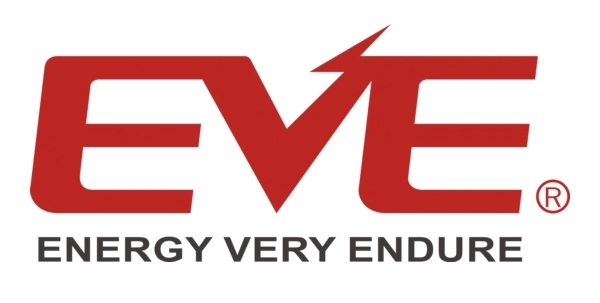
EVE Energy Co., Ltd. (EVE)
Overview
EVE Energy Co., Ltd. (EVE), founded in 2001, is a leading Chinese solid state battery manufacturer known for focusing on high-power and high-durability battery solutions. EVE has been actively developing solid-state technology using sulfide and halide-based solid electrolytes to enhance the performance and safety of its batteries. The company’s strategy involves a phased approach, starting with semi-solid batteries and gradually transitioning to fully solid-state designs. With its advanced materials and strong research capabilities, EVE aims to dominate the solid state battery market.
Development Timeline
- 2017: EVE officially launched its solid state battery research program, focusing on developing sulfide-based solid electrolytes. This early-stage research addressed key technical challenges, such as optimizing electrolyte composition and improving the interface stability between the solid electrolyte and electrode materials.
- 2022: EVE made significant progress in its semi-solid battery development, successfully producing prototype cells with an energy density of 330 Wh/kg and a cycle life of over 2,000 cycles. This semi-solid design served as a transitional technology, allowing EVE to refine its processes and prepare for the eventual launch of fully solid state batteries.
- 2023: At the first annual Lithium Battery Conference, EVE unveiled its roadmap for solid state battery development. The company announced that it would pursue a two-step strategy: achieving breakthroughs in production techniques by 2026 and launching a high-power, high-environmental resistance solid state battery model for hybrid electric vehicles (HEVs). This initial model will focus on delivering enhanced safety and improved power output for demanding applications.
- 2025: EVE plans to complete the development of its second-generation semi-solid battery with an energy density of 400 Wh/kg. The company aims to begin vehicle integration testing by year-end to gather performance data and refine its designs.
- 2026: EVE expects to achieve a significant milestone by launching its first high-power solid state battery for HEVs. This model will serve as a stepping stone toward developing high-energy-density batteries suitable for full electric vehicles (EVs).
- 2028: EVE aims to introduce a fully solid state battery with an energy density of 400 Wh/kg. This product will represent the culmination of its R&D efforts and will be targeted at a range of applications, including high-end EVs and grid storage.
- 2030 and Beyond: By 2030, EVE plans to scale up production and establish itself as a major supplier of solid state batteries in both domestic and international markets. The company’s long-term strategy includes increasing its solid state battery lineup’s energy density and safety while reducing costs to make these batteries more accessible.

Samsung SDI
Overview
Samsung SDI, a subsidiary of Samsung Group, began its journey in solid state battery development in 2013. The company focuses on creating high-performance, safe batteries using advanced materials like high-nickel cathodes and sulfide-based electrolytes. By leveraging its expertise in battery manufacturing and cutting-edge research facilities, Samsung SDI aims to produce batteries that can outperform conventional lithium-ion batteries in energy density, safety, and lifespan.
Development Timeline
- 2013: Samsung SDI began its initial solid state battery technology research. The goal was to address some key limitations of existing lithium-ion batteries, such as safety risks and energy density constraints.
- 2018: The company intensified its efforts by investing heavily in solid-state research projects. During this time, Samsung SDI also began collaborating with other South Korean battery manufacturers, such as LG Chem and SK Innovation, to advance the development of high-energy-density cells.
- 2020: Samsung SDI achieved a significant breakthrough by developing a prototype solid state battery with an energy density of over 400 Wh/kg. This battery demonstrated a potential single-charge driving range of over 800 kilometers, making it a viable option for electric vehicles (EVs) looking to extend their range. The prototype had a cycle life of over 1,000 cycles, setting a new benchmark for performance in the solid-state field.
- 2023: Samsung SDI established its first solid-state pilot production line (the S-Line) at its research facility in Suwon, South Korea. In June, the company produced its first samples of sulfide-based solid state batteries, marking the start of pre-commercial production. By August, Samsung SDI announced plans to expand its Ulsan plant to accommodate new production lines for LFP (Lithium Iron Phosphate) and solid state batteries, to double the plant’s capacity.
- 2025: Samsung SDI aims to finalize its large-scale production technology for solid state batteries. The company plans to develop high-capacity solid state batteries that can be manufactured at scale, making it ready for mass-market adoption.
- 2027: Full-scale mass production of solid state batteries will begin at the newly expanded Ulsan facility. The company expects to achieve an energy density of 900 Wh/L, making these batteries ideal for various applications, from high-performance EVs to industrial energy storage systems.
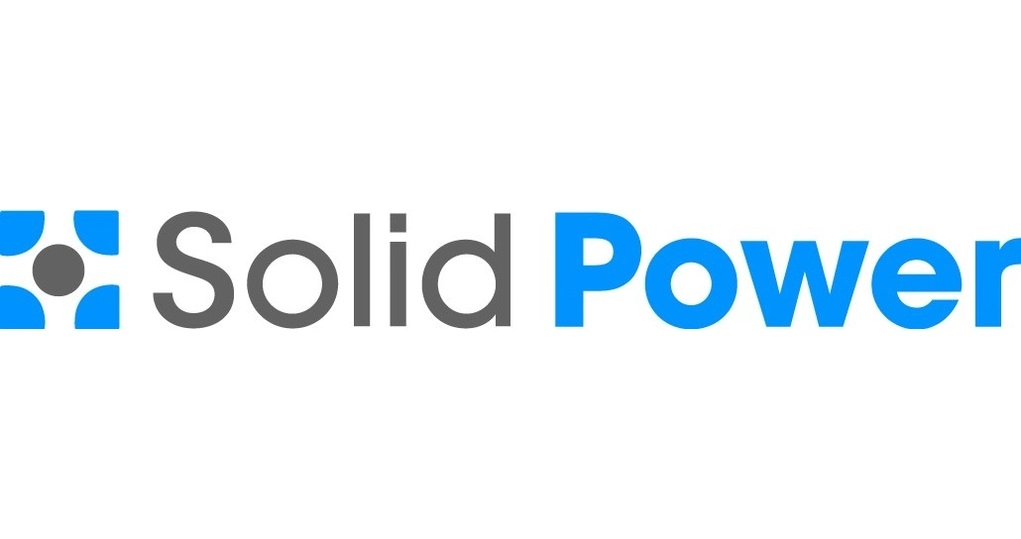
Solid Power
Overview
Solid Power, founded in 2011 as a spin-off from the University of Colorado, focuses exclusively on developing high-performance solid state battery cells and materials. The company has carved out a unique niche by using sulfide-based solid electrolytes, which are known for their high ionic conductivity and safety. Solid Power’s goal is to create solid state batteries that can be manufactured using existing lithium-ion production lines, making them easier and more cost-effective to scale up.
Development Timeline
- 2011: Solid Power was established by a group of scientists at the University of Colorado. The company started by exploring novel solid-state materials and designs that could outperform traditional lithium-ion batteries. Initially, Solid Power received support from the U.S. Air Force and the National Science Foundation to develop its core technology.
- 2017: Solid Power entered its first significant partnership agreement with BMW. This collaboration allowed the company to accelerate its development of solid state battery prototypes for the automotive market.
- 2018: The company expanded its research focus by introducing a second core product: a high-energy-density solid state battery using a unique combination of NCM (Nickel Cobalt Manganese) cathodes and silicon-based anodes. This development attracted interest from other automakers, including Ford and SK Innovation.
- 2022: Solid Power installed its pilot production line for sulfide-based solid state batteries. With an annual capacity of 15,000 battery cells, this facility enabled the company to produce its first prototype cells for testing and further optimization. During this year, Solid Power also began working closely with BMW and Ford to integrate its battery technology into their electric vehicle platforms.
- 2023: In November, Solid Power announced that it had produced its first batch of A-sample solid state batteries, which were delivered to BMW for initial testing and automotive qualification. This milestone marked the company’s entry into the vehicle certification phase, with plans to use these batteries in BMW’s demonstration projects. Additionally, BMW received a license to develop Solid Power’s solid state batteries at its facilities, further deepening the partnership.
- 2025: Solid Power aims to start large-scale production of solid state battery prototypes, focusing on improving energy density and extending cycle life. This phase will also involve optimizing the integration of its solid-state cells into various automotive platforms.
- 2026: The company plans to ramp up production to deliver its solid state batteries for commercial use in hybrid and electric vehicles. By 2026, Solid Power’s production capabilities will be significantly expanded to meet the growing demand from its partners.
- 2030: Solid Power expects to reach full-scale mass production by 2030, with an energy density target of 560 Wh/kg. This level of performance would place Solid Power’s solid state batteries among the highest-energy-density solutions available, making them a strong competitor in the EV and energy storage markets.

LG Energy Solution
Overview
LG Energy Solution, a subsidiary of LG Chem, is one of the top global battery manufacturers. The company strongly focuses on lithium-ion and solid-state battery technologies and is well-known for its high-quality batteries used in electric vehicles (EVs) and energy storage systems. Recently, LG Energy Solution has been making significant strides in solid-state battery development, particularly in the semi-solid and fully solid-state sectors.
Development Timeline
- 2013: LG Energy Solution started its initial research into solid-state technology, exploring different material compositions and production techniques to enhance battery safety and performance.
- 2023: In September, LG Energy Solution announced constructing a semi-solid battery production line at its Ochang Energy Plant, targeting commercial production by 2026. This new facility will focus on semi-solid batteries with an energy density of around 650 Wh/L, providing higher energy output than traditional lithium-ion batteries. At the World Power Battery Conference in 2023, LG Energy Solution revealed its plan first to commercialize semi-solid batteries and later transition to full solid-state technology.
- 2024: At the “Inter Battery 2024” exhibition, LG Energy Solution highlighted its efforts to develop lithium-sulfur batteries as the next-generation technology. The company aims to begin mass production of these batteries by 2027. At the same time, LG Energy Solution is working on two solid state battery routes: a polymer solid state battery and a sulfide-based solid state battery. This dual strategy allows the company to address various market needs and ensure broader application of its solid-state products.
- 2026: LG Energy Solution plans to achieve commercial-scale production of its semi-solid batteries. The company is focusing on optimizing silicon or lithium metal anodes to boost energy density further, making these batteries more suitable for EVs and high-performance applications.
- 2028: LG Energy Solution aims to launch a polymer solid state battery with an energy density of 750 Wh/L and complete its research on a high-capacity sulfide-based battery by this year. These batteries will offer a substantial increase in both energy storage capacity and safety, positioning LG as a leader in high-energy-density battery technology.
- 2030: Full commercialization of LG Energy Solution’s sulfide-based solid state batteries is expected by 2030. The company’s goal is to achieve an energy density exceeding 900 Wh/L, making these batteries ideal for long-range electric vehicles and other demanding applications. This development will mark a significant milestone, as LG Energy Solution transitions from semi-solid to full solid state battery technology, ensuring its position as one of the top Solid State Battery Companies globally.

Toyota
Overview
Toyota, one of the world’s largest automakers, has been at the forefront of solid state battery research for decades. The company’s focus on solid-state technology is part of its broader strategy to lead the electric vehicle market and reduce reliance on traditional lithium-ion batteries. Toyota’s solid state batteries are known for their high energy density, fast charging capabilities, and enhanced safety. By leveraging its extensive patent portfolio and partnerships, Toyota aims to bring solid state batteries to mass production within the next few years.
Development Timeline
- 1990: Toyota began researching solid state battery technology, making it one of the earliest companies to explore this area. Early research focused on understanding the fundamental properties of solid electrolytes and their potential to replace liquid electrolytes in conventional batteries.
- 2008: Toyota partnered with Ilika, a UK-based materials innovation company, to co-develop solid state batteries. This collaboration helped Toyota advance its understanding of solid-state materials and led to the development of its first solid-state prototypes.
- 2019: Toyota showcased its first solid state battery samples and demonstrated a prototype vehicle powered by this technology. Around the same time, Toyota and Panasonic established a joint venture to accelerate the commercialization of solid state batteries. By the end of 2019, Toyota held over 1,300 patents related to solid state battery technology, making it a leader in intellectual property in this field.
- 2023: In July, Toyota announced that it had developed a breakthrough in solid state battery technology, overcoming the issue of volume expansion that typically shortens the lifespan of these batteries. This new technology allows Toyota’s solid state batteries to be fully charged in under 10 minutes and deliver a range of up to 1,200 kilometers on a single charge. In October, Toyota partnered with Idemitsu Kosan, a leading Japanese chemical company, to establish a small-scale production line for solid-state electrolytes at Idemitsu’s factory in Chiba Prefecture, Japan. This partnership aims to commercialize Toyota’s sulfide-based solid state batteries by 2027.
- 2025: Toyota plans to introduce its first-generation solid state batteries in hybrid electric vehicles (HEVs) by 2025. This will serve as a test phase for the technology, allowing Toyota to refine its designs and gain market feedback before launching full electric vehicles with solid state batteries.
- 2027: Toyota will begin mass-producing solid state batteries for its electric vehicles. The company’s goal is to offer vehicles with significantly longer range, faster charging, and enhanced safety compared to traditional EV batteries. This timeline will see the introduction of solid state batteries in Toyota’s high-end models, further establishing its dominance in the EV market.
- 2030: Toyota aims to achieve a production capacity capable of equipping 3.5 million vehicles annually with solid state batteries by 2030. This scale would enable Toyota to maintain its competitive edge and solidify its position as a leader in solid state battery technology.
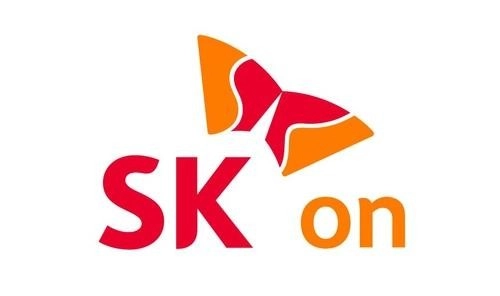
SK On
Overview
SK On, a subsidiary of South Korea’s SK Innovation, is actively developing solid state battery technologies to support the future of electric vehicles (EVs) and energy storage systems. The company’s approach focuses on two main solid state battery types: polymer-oxide composite batteries and sulfide-based batteries. Through partnerships with research institutions and significant investments in R&D, SK On aims to achieve early commercialization of its solid-state products by the end of this decade.
Development Timeline
- 2023: SK On announced that it had successfully developed a new oxide-based solid electrolyte with the highest lithium-ion conductivity in the world. This electrolyte, created in collaboration with Dankook University, achieved an ionic conductivity of 1.7 mS/cm, representing a 70% improvement over existing materials. The new electrolyte uses LLZO (Lithium Lanthanum Zirconium Oxide) as its base material, boosting ion transport and providing excellent chemical stability. This prevents unwanted reactions with cathode materials and helps suppress the formation of dangerous lithium dendrites, enabling the use of lithium metal anodes instead of conventional graphite.
- 2024: SK On is set to complete construction of its new battery research center in Daejeon, South Korea. This facility will become a critical hub for advancing the company’s solid state battery development. The research center will focus on refining the microstructure of solid electrolytes and improving the safety and durability of SK On’s solid state battery designs.
- 2025 – 2026: SK On plans to produce its first prototype solid state batteries. These early models will include both polymer-oxide composite batteries and sulfide-based batteries, each targeting different segments of the EV market. By 2026, SK On aims to complete initial prototype testing and begin scaling up production to prepare for the next development phase.
- 2028: SK On expects to begin commercial production of its first-generation solid state batteries, focusing on EVs and high-end energy storage applications. The commercial products will offer improved energy density, faster charging speeds, and enhanced safety compared to traditional lithium-ion batteries.
- 2029: Full-scale commercialization is expected for both types of solid state batteries, solidifying SK On’s position as a leader in solid-state technology. With its strong R&D capabilities and strategic partnerships, SK On is poised to become one of the top Solid State Battery Companies driving the future of energy storage.

Factorial Energy
Overview
Factorial Energy, an American startup founded in 2020, is quickly making a name for itself in the solid state battery industry. The company’s unique technology, the Factorial Electrolyte System Technology (FEST), integrates semi-solid and solid-state electrolyte materials into existing lithium-ion battery production lines. This approach significantly reduces production costs while enhancing energy density and safety. Factorial Energy’s solid state batteries aim to offer longer driving ranges, improved safety, and compatibility with standard manufacturing processes, making them a strong competitor in the market.
Development Timeline
- 2020: Factorial Energy was founded in Woburn, Massachusetts, to commercialize its proprietary FEST technology. The company initially focused on developing a scalable, cost-effective manufacturing process for integrating solid-state electrolytes into lithium-ion battery cells. By utilizing FEST, Factorial aimed to create batteries offering 20-50% more range than traditional lithium-ion batteries without compromising safety or cycle life.
- 2022: Factorial Energy secured $200 million in Series D funding, led by automotive giants Mercedes-Benz and Stellantis. This capital injection accelerated the company’s R&D efforts and enabled the construction of a new solid state battery pilot line. The partnerships with these major automakers also paved the way for Factorial to test its battery technology in real-world vehicle applications.
- 2023: In October, Factorial Energy delivered its first 100 Ah lithium-metal solid-state A-sample cells to automotive partners for testing. This marked a significant milestone in Factorial’s development, as these samples demonstrated the potential of FEST technology to deliver high energy densities and long cycle life. Simultaneously, the company announced progress on its 200 MWh solid state battery assembly line in Methuen, Massachusetts, which, when completed, will be the largest solid state battery production facility in the U.S.
- 2025: Factorial Energy plans to complete the installation of its production line and begin low-volume manufacturing of semi-solid batteries using its FEST technology. This phase will also see the integration of Factorial’s batteries into the first generation of EV prototypes from Mercedes-Benz and Stellantis, enabling extensive testing and validation.
- 2026 – 2028: Factorial will ramp production and transition from semi-solid to excellent state batteries. By 2028, the company expects to achieve full commercialization of its solid-state products, with a focus on high-energy-density cells that offer more excellent safety and performance than current lithium-ion batteries.
- 2030 and Beyond: Factorial aims to be a leading supplier of solid state batteries for the global EV market by 2030. With its FEST technology and strong partnerships, Factorial Energy plans to compete with larger Solid State Battery Companies by offering high-quality batteries that meet the stringent safety and performance requirements of the automotive industry.
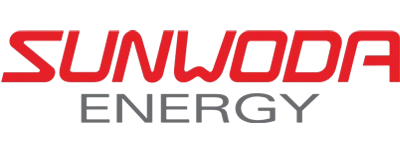
Sunwoda
Overview
Sunwoda, a leading Chinese battery manufacturer, is actively developing solid state battery technology to meet the growing demand for high-energy-density batteries in electric vehicles (EVs) and energy storage systems. The company’s solid state battery efforts focus on enhancing energy density, reducing costs, and building partnerships to accelerate development. Sunwoda has outlined a clear roadmap for its solid state batteries, with production capabilities expected to ramp up significantly by 2026.
Development Timeline
- 2023: Sunwoda took a significant step by signing a collaborative agreement with the Songshan Lake Materials Laboratory in Dongguan. The partnership aims to build a shared research and development platform dedicated to solid state batteries, enabling both parties to pool their resources and expertise. This agreement marked the beginning of Sunwoda’s structured approach to solid state battery innovation.
- 2024: The company announced that it had completed the development of its first-generation semi-solid batteries, achieving an energy density of 300 Wh/kg. The focus was optimizing the polymer-based electrolyte to ensure safety and performance while keeping costs competitive. The next step was to develop second-generation batteries with even higher energy densities.
- 2025: Sunwoda reached a milestone with its second-generation semi-solid batteries entering pilot production. With an energy density of 400 Wh/kg, these batteries began undergoing vehicle integration tests with automotive partners. The company also announced that it had achieved laboratory validation for its third-generation solid state batteries, which use a polymer-composite electrolyte and offer a targeted energy density of 500 Wh/kg. This marked a major leap in Sunwoda’s technical capabilities and positioned it to compete with other leading Solid State Battery Companies.
- 2026: Sunwoda’s solid state battery production line is expected to reach an annual capacity of 1 GWh. This new facility will focus on third-generation solid state batteries with an increased energy density target of 500 Wh/kg and a cell capacity of 60 Ah. The company also plans to reduce the cost of these batteries to 2 RMB/Wh, making them more accessible to a broader range of EV manufacturers.
- 2028 – 2030: Sunwoda is set to introduce its fourth-generation solid state batteries, featuring a lithium metal anode and a projected energy density of 700 Wh/kg. This development will significantly enhance the driving range and charging speeds of EVs equipped with Sunwoda’s batteries. By 2030, the company aims to be one of the top Solid State Battery Companies in terms of technology and production capacity, supplying solid state batteries to global automotive OEMs.

Gotion Hi-Tech
Overview
Gotion Hi-Tech, another leading Chinese battery manufacturer, has been actively developing its own solid state battery technology. The company’s primary focus is on achieving high energy densities and long cycle life using advanced sulfide-based solid electrolytes. Gotion Hi-Tech’s solid-state program, launched in 2017, has seen rapid progress in recent years, culminating in the launch of its “Jinshi” (Golden Stone) solid state battery in 2023.
Development Timeline
- 2017: Gotion Hi-Tech officially began its solid state battery development program, focusing on sulfide-based electrolytes. The company’s early research efforts focused on improving the stability and ionic conductivity of sulfide materials to enable safer and higher-capacity batteries.
- 2023: Gotion Hi-Tech unveiled its first full solid state battery, branded as the “Jinshi” battery in May. This battery features an energy density of 350 Wh/kg and 800 Wh/L, which is about 40% higher than conventional ternary lithium-ion batteries. The “Jinshi” battery also boasts a cycle life of over 3,000 cycles, making it highly competitive in terms of both performance and longevity. The launch of this battery marked a significant breakthrough for Gotion Hi-Tech, positioning it as a serious contender among other Solid State Battery Companies.
- 2024: Following the successful launch of the “Jinshi” battery, Gotion Hi-Tech began ramping up its pilot production line. The company focused on refining the battery’s materials, including developing ultra-thin film-coated single-crystal cathodes and a 3D mesoporous silicon anode. These innovations contributed to better energy retention and faster charging capabilities, making the “Jinshi” battery suitable for a broader range of applications, from electric vehicles to grid storage.
- 2027: Gotion Hi-Tech plans to conduct small-scale vehicle integration tests using its “Jinshi” solid state batteries. This phase will allow the company to gather data on battery performance under real-world conditions and make any necessary adjustments before full-scale production. If successful, Gotion Hi-Tech will begin preparing for mass production, targeting 350 Wh/kg energy density as the baseline for its commercial products.
- 2030: The company aims to achieve mass production of its full solid state batteries by 2030. With the industrial chain becoming more mature, Gotion Hi-Tech expects to offer solid state batteries with a consistent energy density of 350 Wh/kg across its entire product lineup. The company’s long-term goal is to increase the energy density to 400 Wh/kg while maintaining a system-level energy density of 280 Wh/kg, enabling vehicles to achieve a range of up to 1,000 kilometers on a single charge.
Conclusion
As solid state battery technology continues to evolve, key players such as CATL, BYD, QuantumScape, and others are pushing the boundaries of what is possible. Each of these Solid State Battery Companies has developed distinct strategies and technologies to tackle the challenges of safety, energy density, and commercialization. The progress made by these companies not only sets the stage for a new era in battery technology but also promises to revolutionize the way energy is stored and utilized across various industries. As mass production and commercial adoption increase, solid state batteries could soon become the standard for high-performance energy solutions, providing safer and more efficient power for everything from electric vehicles to renewable energy systems.

